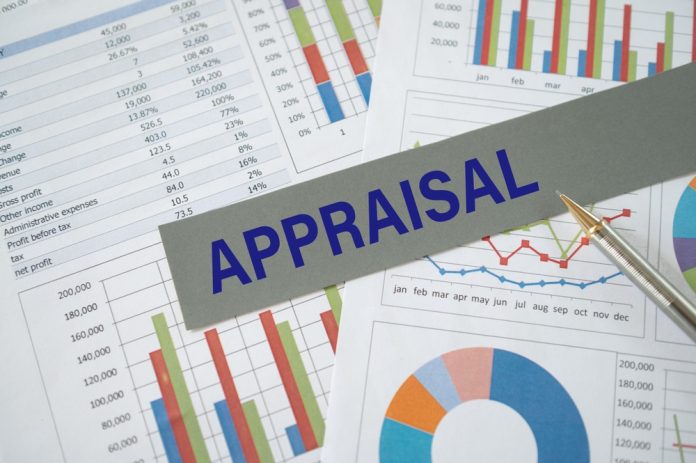It’s one of the most talked-about steps in a real estate transaction—yet it’s also one of the least understood. The appraisal can feel mysterious, especially if you’re a first-time buyer or seller. What is it? Who handles it? And why does it sometimes cause deals to fall apart?
The appraisal process plays a crucial role in determining a home’s value, especially when financing is involved. Lenders rely on appraisals to make sure the home is worth what the buyer has agreed to pay. If the value comes in lower than expected, it can lead to some tough decisions.
In this article, I’ll walk you through exactly how the appraisal process works, what to expect, and how to prepare. Whether you’re buying or selling, having a clear understanding can save you time, money, and stress.
What Is a Home Appraisal?
An appraisal is a professional assessment of a home’s fair market value. It’s typically required by a mortgage lender before they’ll approve a buyer’s loan. In other words, the bank wants to make sure the property is worth the amount they’re lending on it.
The appraisal is done by a licensed appraiser who is neutral and independent. They don’t work for the buyer or the seller—they work for the lender. Their goal is to give an unbiased opinion of what the home is worth based on current market conditions.
This value is based on several factors, including the condition of the property, its location, and recent sales of similar homes in the area. The appraiser typically visits the property in person and later writes up a detailed report, which is shared with the lender and buyer.
What Do Appraisers Look For During an Appraisal?
During the appraisal, the appraiser is looking at both the inside and outside of the home. They’ll assess the size, layout, number of bedrooms and bathrooms, and overall condition. Any upgrades or improvements—like a renovated kitchen or new roof—can help increase the appraised value.
They’ll also look at what’s known as “comps,” or comparable properties. These are recent sales of homes that are similar in size, condition, and location. If your neighbor’s house sold for $450,000 last month and it’s nearly identical to yours, that data will likely impact your appraisal.
Other things that can affect the appraisal include curb appeal, structural integrity, safety features, and even the school district. The appraiser pulls all of this information together into a report that gives a single number: what they believe the home is worth today.
Why Appraisals Matter in a Real Estate Transaction

Appraisals matter because they protect everyone involved in the deal—especially the lender. The lender doesn’t want to loan more money than the home is worth. If the buyer stops making payments and the bank has to foreclose, they need to know they can recover their money.
For the buyer, an appraisal can confirm that they’re not overpaying for a home. It gives peace of mind and also helps guide final loan approval. For the seller, a high appraisal helps confirm that the asking price was appropriate, which can speed up the transaction.
But when an appraisal comes in low—lower than the agreed-upon sale price—that’s when problems can start. The lender won’t finance more than the appraised value, which can lead to delays or even canceled deals. This is why understanding the appraisal process is so important.
What Happens If the Appraisal Comes in Low?
This is one of the most common questions I hear: what do we do if the appraisal comes in low? It’s a valid concern. If the appraised value is lower than the contract price, the buyer’s lender won’t loan the full amount. That means someone has to make up the difference.
There are a few options. The buyer can bring additional cash to the table. The seller can reduce the price. Or both sides can negotiate to meet somewhere in the middle. In some cases, the buyer might even choose to walk away if no agreement is reached.
Sometimes, it’s possible to challenge the appraisal—especially if you can show that certain comps were outdated or not truly comparable. While a challenge isn’t always successful, it can be worth a shot in some cases.
Can Sellers Help the Appraisal Go Smoothly?

Yes, sellers can absolutely help set the stage for a strong appraisal. While you can’t influence the final number, you can present your home in the best possible light. Make sure the property is clean, repairs are handled, and any upgrades are documented.
Leave out a list of improvements you’ve made—think new HVAC system, kitchen remodel, or energy-efficient windows. If you have receipts or before-and-after photos, even better. You want the appraiser to easily see the added value in your home.
Small touches like fresh paint or trimmed landscaping won’t add tens of thousands to the appraisal, but they do contribute to overall appeal. And when the home looks cared for, it creates a positive impression that can work in your favor.
How Long Does the Appraisal Process Take?
The appraisal itself usually takes just a couple of hours. But the full process—scheduling, the site visit, and writing the report—typically takes about 7 to 10 days. In a fast-moving market, it can take longer due to appraiser demand and scheduling challenges.
After the report is submitted, the lender reviews it and uses the value in their final loan decision. If all goes well, it’s one more box checked on the way to closing. But if there are delays or surprises, your real estate agent can help guide you through your next steps.
Final Thoughts on the Appraisal Process
The appraisal may feel like a small piece of the real estate puzzle, but it carries a lot of weight. A strong appraisal can move a deal forward quickly. A low one can cause tension. That’s why it’s important to be prepared and work closely with your agent throughout the process.
Whether you’re buying or selling, don’t hesitate to ask questions. A good agent will help you understand every step—from listing to offer to appraisal—and beyond. Real estate doesn’t have to be overwhelming when you have the right team on your side.
Frequently Asked Questions (FAQ)

What is the purpose of an appraisal?
An appraisal determines a home’s fair market value, primarily for the benefit of the lender. It helps ensure the loan amount matches the actual value of the property.
How much does an appraisal cost?
The cost of an appraisal varies by location and property type but usually ranges from $400 to $700. The buyer typically pays this fee as part of the closing costs.
Can the appraisal be appealed?
Yes, but only in certain situations. If there are factual errors or better comparable sales available, your agent can submit a reconsideration request to the lender.
How long is an appraisal valid?
Appraisals are typically valid for 90 to 120 days, though some lenders may require a new one if the loan takes too long to close.
Does a cash buyer need an appraisal?
No. Cash buyers aren’t required to get an appraisal, but they can choose to for peace of mind or negotiation leverage.

